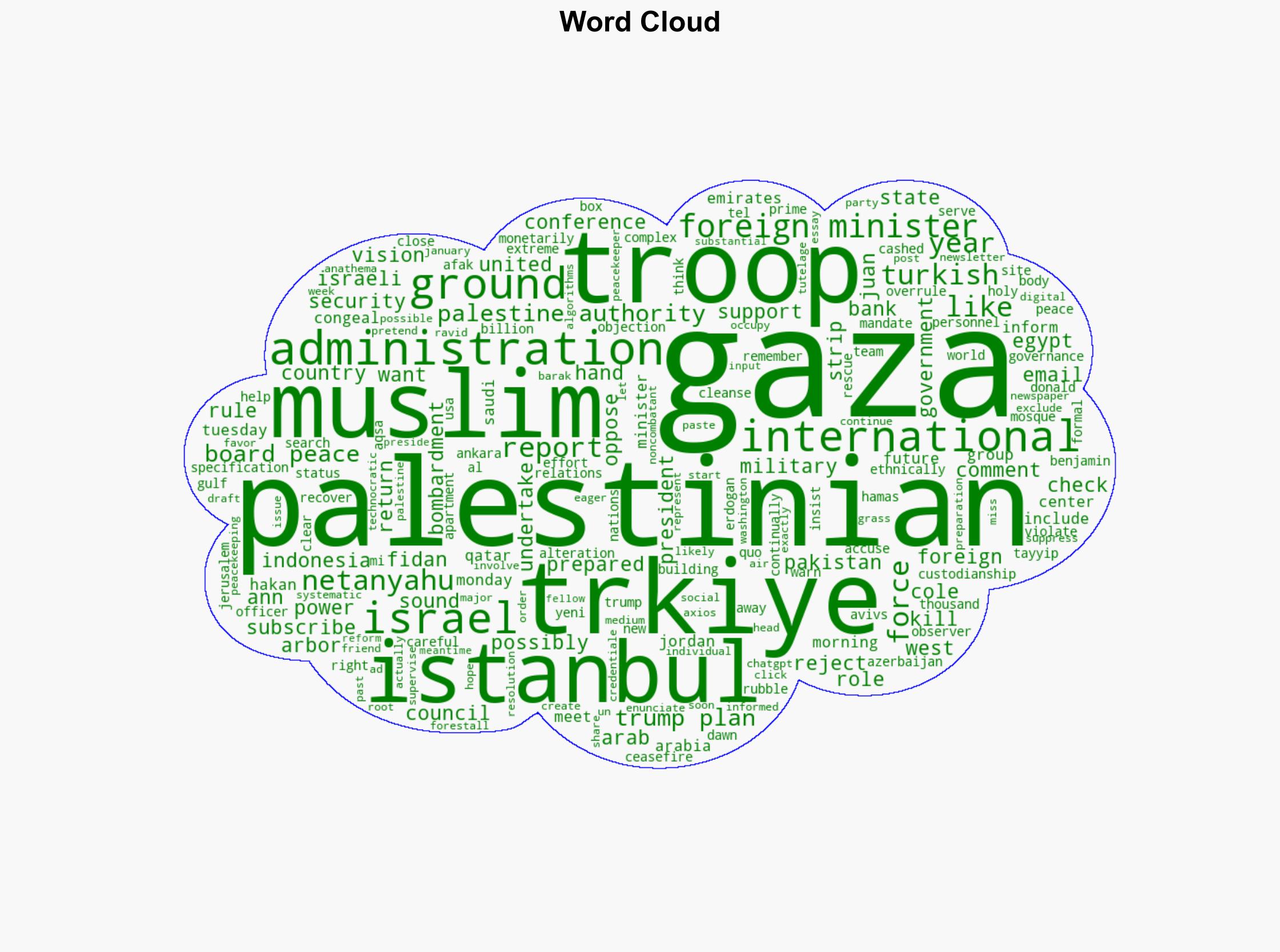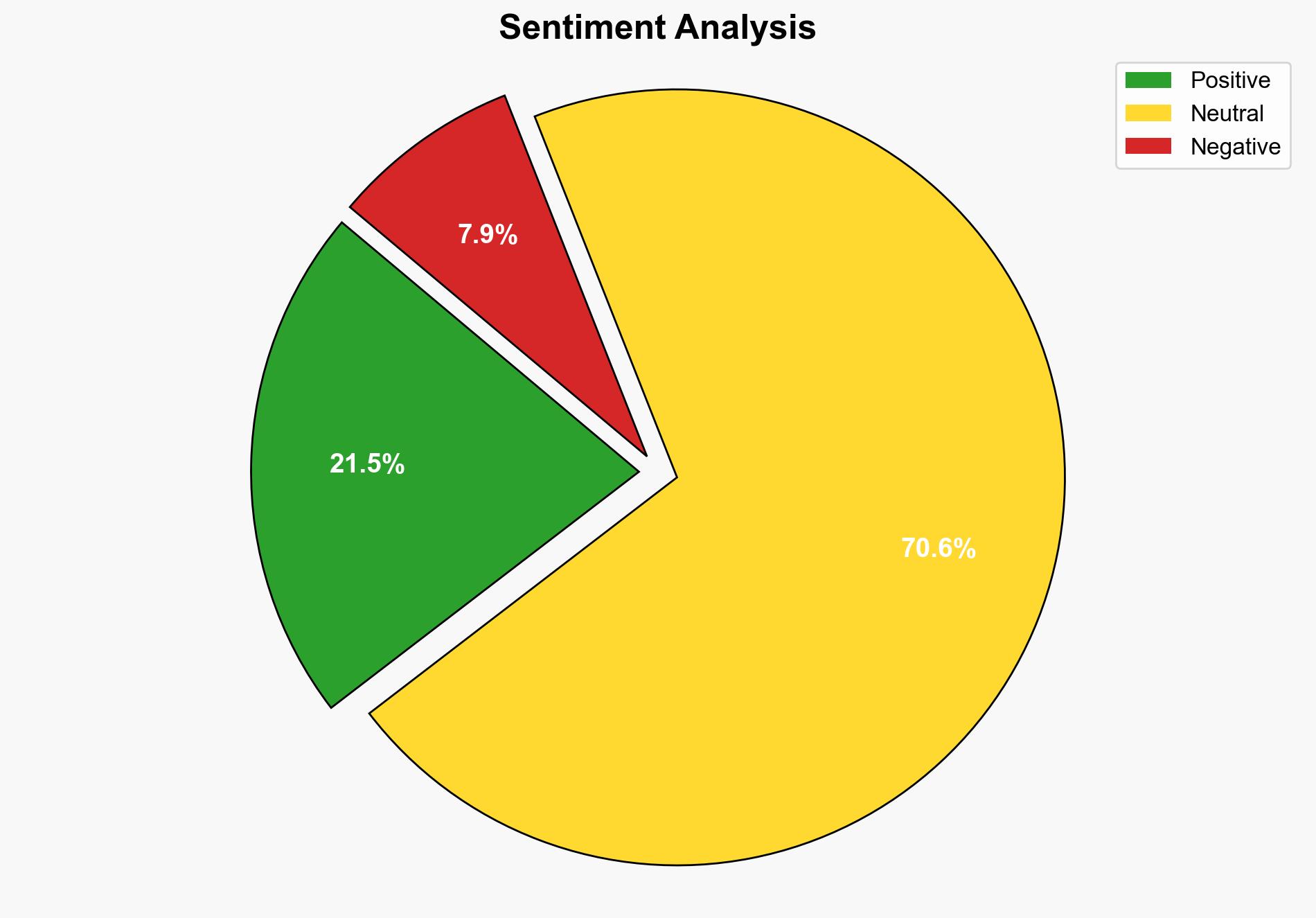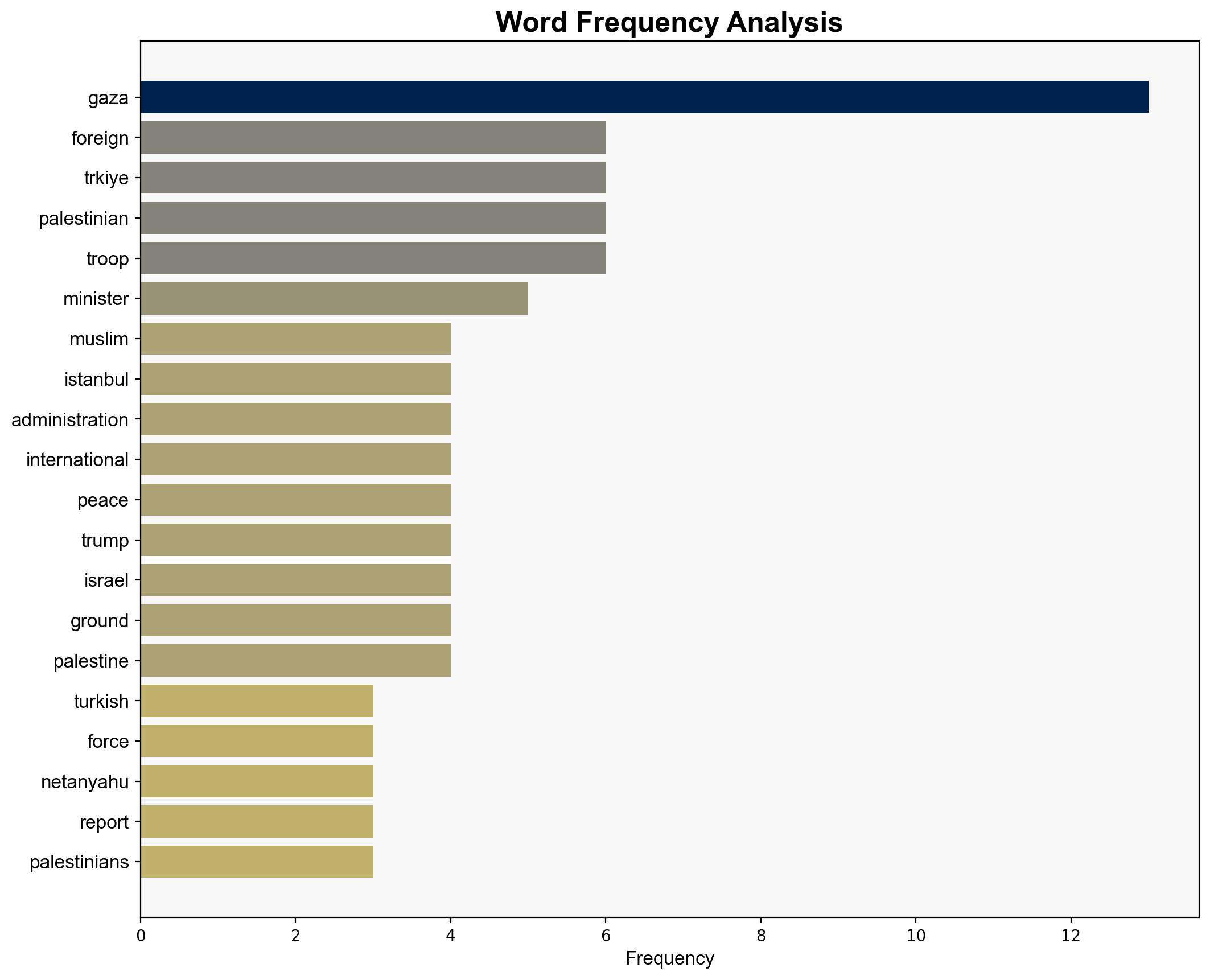Conflicting Visions of an International Force for Gaza in Istanbul and Washington – Juancole.com
Published on: 2025-11-04
Intelligence Report: Conflicting Visions of an International Force for Gaza in Istanbul and Washington – Juancole.com
1. BLUF (Bottom Line Up Front)
The most supported hypothesis suggests that the Istanbul conference’s vision of a Muslim-led peacekeeping force in Gaza is more viable due to regional support and alignment with local sentiments. Confidence level: Moderate. Recommended action: Engage diplomatically with key regional players to align international efforts and prevent unilateral actions that could exacerbate tensions.
2. Competing Hypotheses
Hypothesis 1: The Istanbul conference’s proposal for a Muslim-led peacekeeping force in Gaza will gain traction, leading to a more regionally accepted solution.
– **Supporting Evidence**: The involvement of major Muslim countries like Türkiye, Qatar, and Saudi Arabia; rejection of foreign custodianship aligns with local governance preferences.
– **SAT Applied**: Cross-Impact Simulation suggests regional support may lead to greater acceptance and legitimacy.
Hypothesis 2: The Washington-backed plan for an international force with a UN mandate will prevail, emphasizing a more traditional peacekeeping approach.
– **Supporting Evidence**: Historical precedence of UN-mandated forces; potential backing from Western allies.
– **SAT Applied**: Bayesian Scenario Modeling indicates potential for broader international support but faces regional resistance.
3. Key Assumptions and Red Flags
– **Assumptions**: Regional actors will maintain unity in their approach; international forces can effectively stabilize Gaza without exacerbating tensions.
– **Red Flags**: Potential for Israeli opposition to derail plans; lack of clear consensus on the role and composition of peacekeeping forces.
– **Blind Spots**: Underestimation of grassroots Palestinian sentiment and potential for local resistance to external forces.
4. Implications and Strategic Risks
– **Geopolitical Risks**: Increased tensions between regional powers and Israel; potential for escalation if peacekeeping efforts are perceived as biased.
– **Economic Risks**: Disruption of regional trade and investment if instability persists.
– **Psychological Risks**: Erosion of trust in international interventions among local populations.
5. Recommendations and Outlook
- Engage in multilateral diplomacy to harmonize efforts between regional and international actors.
- Develop contingency plans for potential escalation scenarios, including increased violence or political instability.
- Scenario Projections:
- Best Case: Successful deployment of a mutually agreed peacekeeping force, leading to stabilization.
- Worst Case: Breakdown of diplomatic efforts, leading to unilateral military actions and increased conflict.
- Most Likely: Protracted negotiations with intermittent violence, requiring sustained diplomatic engagement.
6. Key Individuals and Entities
– Hakan Fidan
– Benjamin Netanyahu
– Donald Trump
– Tayyip Erdogan
7. Thematic Tags
national security threats, regional focus, peacekeeping operations, geopolitical strategy





